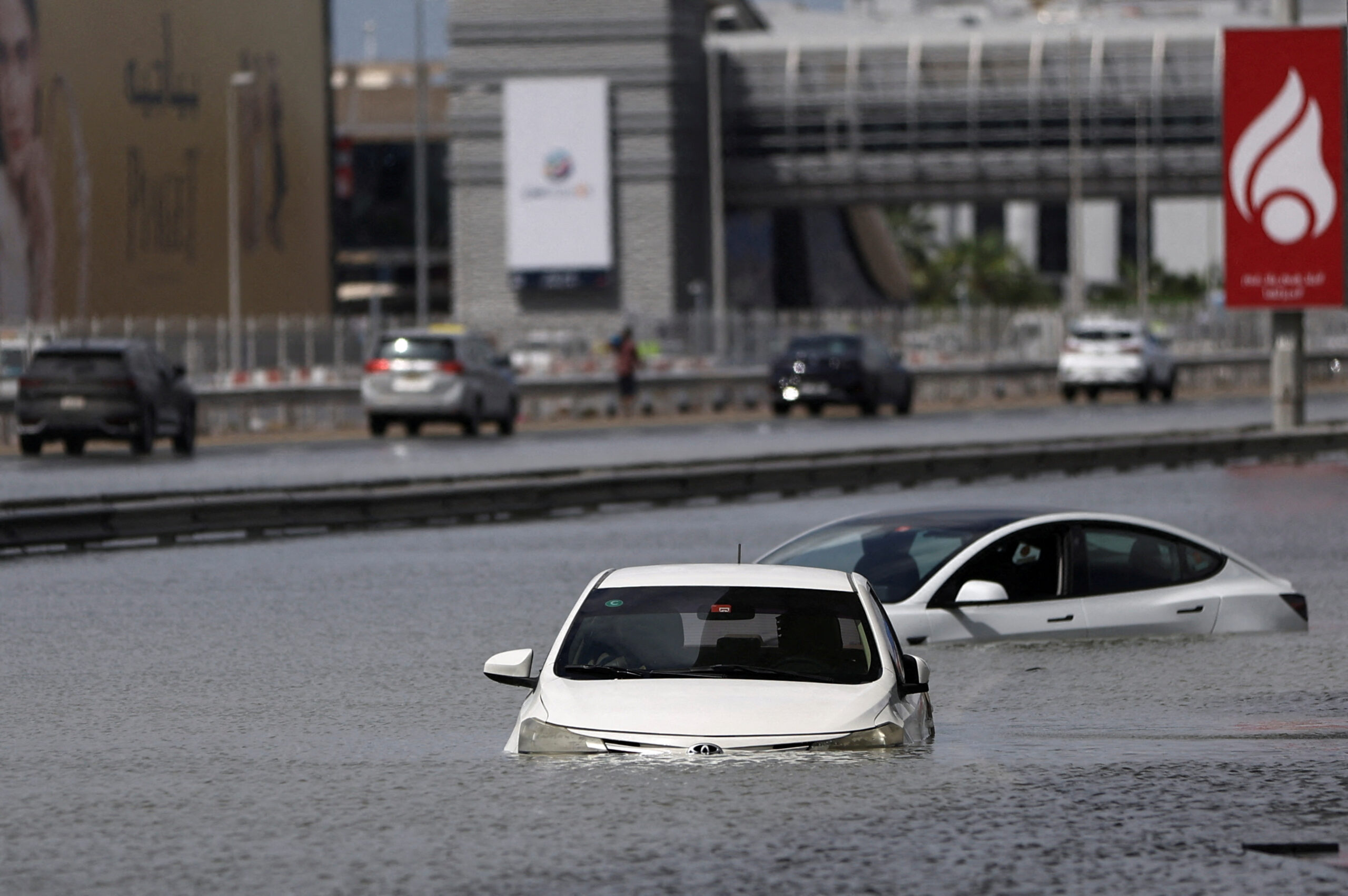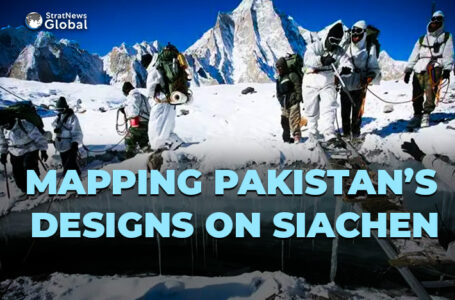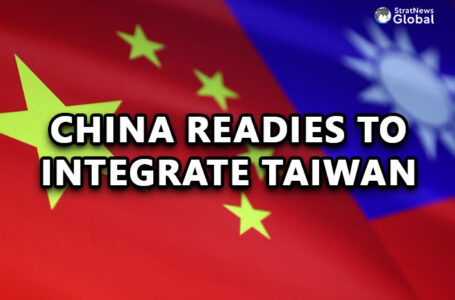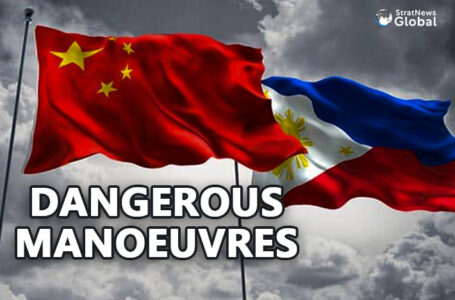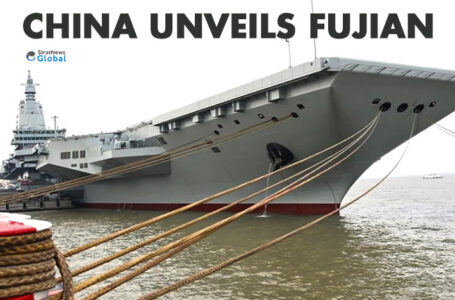Philippines Summons China Envoy, Protests Harassment, Danger...
Ukraine’s Kuleba In India: Visit Prodded By The West?
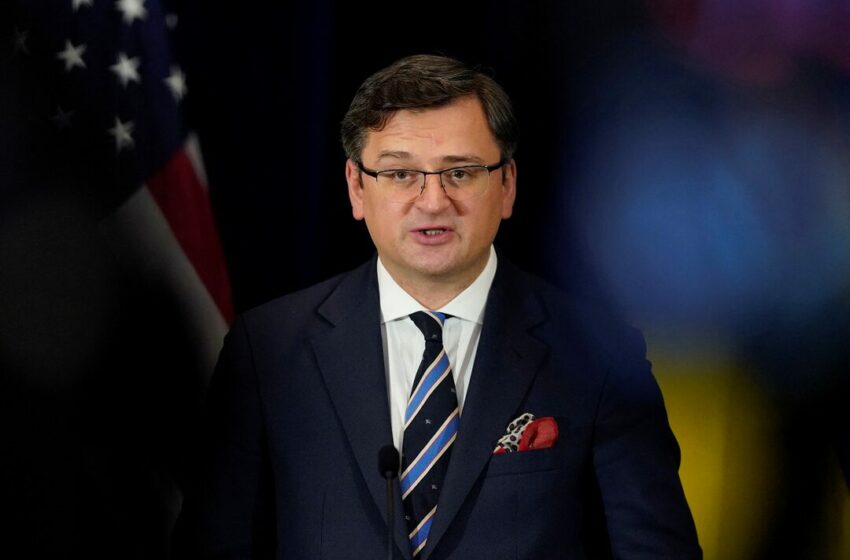
“Essentially we are balancing, we are meeting everyone and talking to everybody. But if you look at the substance of the chat that Ukraine’s foreign minister had with our people, nothing significant has changed. You know, it’s not that we are changing our position on Russia.”
With that Nandan Unnikrishnan, head of the Russia studies programme at the Observer Research Foundation told Stratnews Global why, in his view, the recent visit of Ukraine’s foreign minister Dymtro Kuleba may not be such a big deal.
“He did not meet NSA Ajit Doval nor was there a call on Modi,” he explained. “Nor did we do something dramatic such as supplying them with arms or something like that. I have a suspicion that the Ukrainians weren’t too keen to come to India. I think they were prodded by their friends in Washington. I think we were also prodded by our friends in Washington.
“But I think it’s a good thing that India is reaching out, trying to show that it has a balanced approach, that it is not approving of what Russia is doing in Ukraine. I don’t think we have the necessary leverage, with either the Russians, the Ukrainians or the United States, to be able to play a genuinely mediating role.”
Unnikrishnan was a guest on The Gist, and with the Ukraine war now over 700 days old, touched on US Secretary of State Blinken’s keenness to get Kyiv into NATO.
“It is definitely not getting into NATO this year. My personal, feeling is that if rational logic prevails, Ukraine is not going to get into NATO. However, it may have security arrangements at a bilateral level with the United States, and maybe some other European countries may even give security guarantees. But it is not going to be formally a member of NATO. NATO may also be reluctant and I don’t think they are going to rock the boat.”
He was dismissive about Europe taking the lead in the Ukraine war. “The US is not going to allow it. And if NATO takes charge of the war in Ukraine, then the US is going to decide how it is going to be conducted.”
He acknowledged efforts by NATO to create a $100 billion fund in the event of a Donald Trump victory in the US elections later this year. Trump has indicated he has no interest in continuing the Ukraine war.
Unnikrishnan believes that “US national interests are not going to change. There is a lot of confusion because for the first time, US politics, domestic politics has become an incredible variable in international affairs. The question is, Europe and the United States, primarily the United States has to decide, what is the argument to continue the war in Ukraine?”
Does the US settle for some kind of ugly peace where the Russians and the Ukrainians keep up a sort of low intensity warfare?
Unnikrishnan thinks there will be a rearrangement of European security, taking into account some element of Russian interests. Russia may not concede any territory in Ukraine. In fact, it will keep what it’s already got and the rump Ukrainian state will be brought back to life by Europe and the United States. Russia, he notes, may seek to reach the administrative boundaries of the four districts or oblasts that it presently occupies.
Moscow believes that the the worst is over, that the initiative in the war is in their hands. but they are also realistic enough to understand that the Ukrainians are still strong. They have a lot of weaponry. They haven’t totally run out of people, even though their armed forces are spread a little thin. So they are going to slowly try and grab territory little by little.
“I would think that one of the things that Russia would want to do is to cut off Ukraine from the Black Sea completely,” Unnikrishnan said. “But would they have the capacity to go and take Odessa? I doubt it.”
The Ukrainians appear to be striking deep within Russia, which underscores the extent of Western support, satellites giving real time intelligence. Ukraine is aware of the movements of Russian troops, of, Russian missiles. Russian satellite imagery is clearly not at the same level of coverage. But otherwise, Unnikrishnan thinks the Russians have taken the initiative and withstood the Ukrainian offensive.
“And I don’t think Ukraine now has the capacity, even with an influx of new fresh arms, because of lack of manpower to launch another offensive, because you have to have at least a 3 to 1 ratio to even hope for success.”
Initially the Russians were losing, particularly in 2022 when they were unable to deal with drone attacks, including the Turkish drones supplied to Ukraine. But subsequently they developed their own drones, some apparently purchased from Iran, but also produced within Russia.
Reports do suggest that the Black Sea Fleet has moved out of Sevastopol because of Ukraine’s success in using drones. The Ukrainians also have had some relatively modest success in attacks deep within Russia. There was a report that a refinery in Tatarstan was hit which produces 6 to 8% of Russia’s output of gasoline, petrol and diesel.
“It’s not going to change the nature of the war in terms of the initiative that will still be with the Russians on the ground,” says Unnikrishnan, “because the Russians too have struck within Ukraine demolishing some electrical substations. So areas in Kharkov and other parts of the country were facing problems of electricity supply.”
When the Russians went in Ukraine in 2022, it was an operation predicated on the quick capture of main airfields near Kyiv and then taking over the capital and hoping the Ukrainian regime would surrender. That did not happen. They went in with a small force because they believed victory would be quick, but when the Ukrainians resisted, the Russians faced major losses.
The Russians did realize the importance of the military industrial complex and were able to restructure. Today their production of even things like 155mm artillery shells missions outpaces what the combined West is capable of producing. The Russians have recognized that this is going to be a war of attrition, they are good and proven at that, so with clenched teeth and tightened belts they’ve got down to business.
There is no real agitation or public disaffection with the war. In Moscow you don’t feel the war except these big posters and you see it on television. Restaurants are full, shops are full, so the population does not feel the war.
“We also need to recognise a large portion of the Russian population agrees with Putin that parts of Ukraine belong to Russia,” says Unnikrishnan. “If this continues, let’s say for another year and a half, then attitudes may change. We’ll have to see.”






